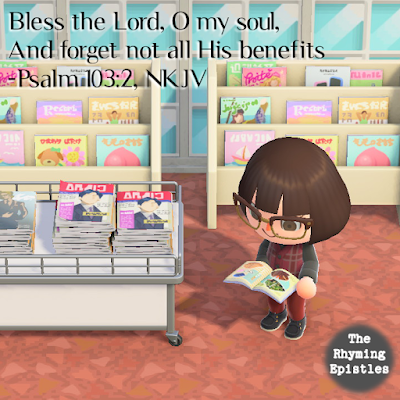Holy, Holy, Holy: Set Apart from the Mundane (Leviticus 16:15-16, 20-22)
“Holy, holy, holy! Though the darkness hide Thee, though the eye of sinful man Thy glory may not see…” – Reginald Heber ☁
Dear routined robot,
Sticking to a system structures our schedules smoothly, but doing
deeds in duplicates decreases devotion to duty.
That doesn’t mean we can’t do sincere quiet time with God if
it’s clocked by the minute. I’m calling the robot within us that reads
Scripture or prays as if to just check it off our to-do lists. Rituals are part
of any religion. If we don’t know their purpose, we’re doing them in vain. If we
don’t feel loved by the one we worship, they would be mundane.
Today, I’ll be discussing about an important yearly ritual
our spiritual ancestors practiced, the Day of Atonement.
Leviticus 16:15-16, 20-22 (NASB)
15 “Then
he shall slaughter the goat of the sin offering, which is for the people, and
bring its blood inside the veil and do with its blood as he did with the blood
of the bull, and sprinkle it on the atoning cover and in front of the atoning
cover. 16 He shall make atonement for the Holy Place, because of the
impurities of the sons of Israel and because of their unlawful acts regarding
all their sins; and he shall do so for the tent of meeting which remains with
them in the midst of their impurities.
20 “When
he finishes atoning for the Holy Place and the tent of meeting and the altar,
he shall offer the live goat. 21 Then Aaron shall lay both of his
hands on the head of the live goat, and confess over it all the wrongdoings of
the sons of Israel and all their unlawful acts regarding all their sins; and he
shall place them on the head of the goat and send it away into the wilderness
by the hand of a man who stands ready. 22 Then the goat shall carry
on itself all their wrongdoings to an isolated territory; he shall release the
goat in the wilderness.
To atone means “to do something that shows you are sorry for
something bad that you did or for something that you failed to do
Making an annual event like this, which concerns everyone, shows how serious sin is. This is the one time in a year the high priest enters the Holy of Holies to atone for their sins by blood sprinkling. Read the whole chapter for elaborate instructions on the whole ritual. What’s called the Holy Place throughout the chapter is the Holy of Holies or the Most Holy Place where God’s presence is. (I mentioned this in a previous post. Click this link if you want to read it.) It's literally set apart as it's covered behind a veil. In here, a cloud of incense must cover the mercy seat, or the high priest inside would die.
 |
| The high priest inside the Most Holy Place (created in Animal Crossing: New Horizons) |
Doing this over and over would seem like a mundane routine
that people just have to do. They might have even missed the point of sacrifices
and confessions. They might have used offerings to justify that they can sin
again.
It doesn’t go on like this forever as what verse 34 of the
King James Version calls an “everlasting statute” what is called “permanent” by
the NASB and just “lasting” by the NIV. Maybe in the old times, they call a
very long period what means to us now is eternal. Jesus fulfilled the old
covenant rituals when He offered Himself up as the ultimate atonement.
When Christ died on the cross, all sin committed and will be
committed by all people are paid for. That doesn’t warrant us to go on sinning.
May we see that it cost the life of our Creator to pay for what we’ve wronged
Him. May we see that His resurrection proves He is God and that death is
conquered. May we see that He gives us eternal life so that we fill the world
with His love.
Holy Father, You call us to be bright as light. Holy Jesus,
Your blood saves us from the dark night. Holy Spirit, You move us according to
Your might. It’s not our holiness, but Yours alone. We thank You for what You
atoned.
With love,
Celina <3
References
Cambridge University Press. (n.d.). ATONE.
Retrieved from Cambridge Dictionary:
https://dictionary.cambridge.org/dictionary/english/atone
Got Questions Ministries. (n.d.). What is the meaning of Azazel / the scapegoat? Retrieved from GotQuestions.org: https://www.gotquestions.org/Azazel-scapegoat.html
Next: Lord, I Need You: The Need to Be Holy (Leviticus 20:22-26)
Previous: I Offer My Life: To Love is To Sacrifice (Leviticus 9:1-7)


Comments
Post a Comment